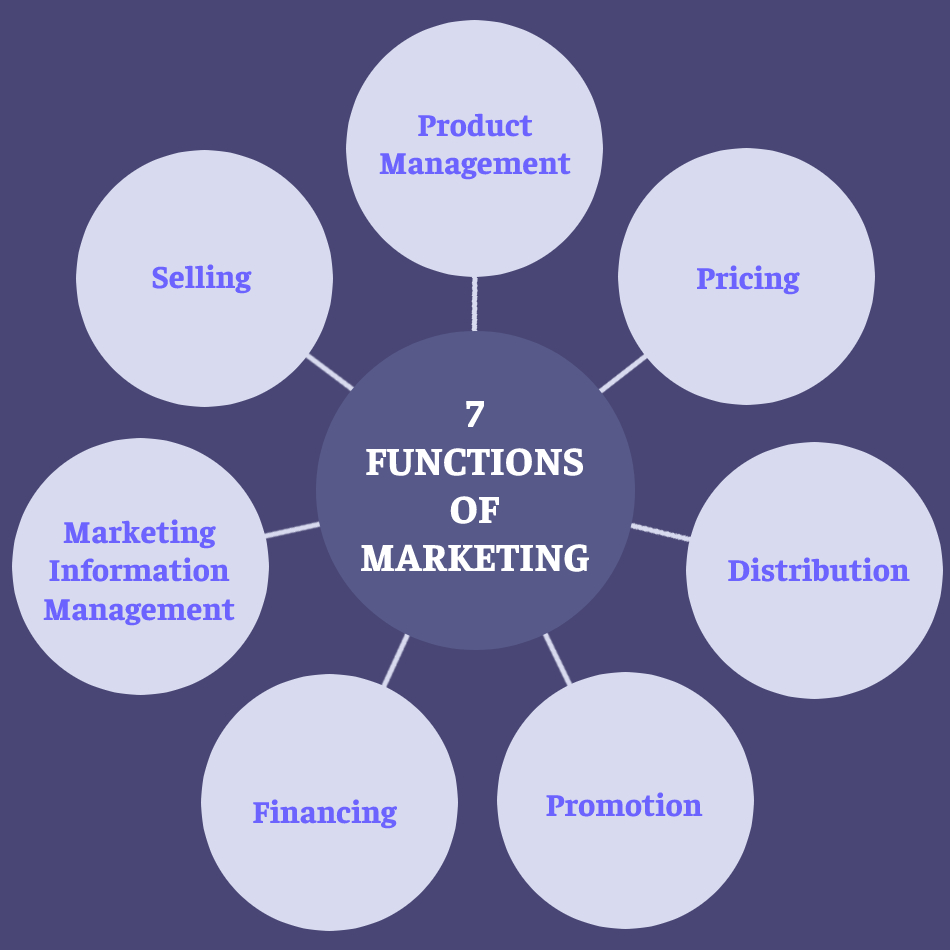Effective marketing management is essential to any organization’s success in today’s fiercely competitive business environment. Identifying, comprehending, and meeting client wants while attaining business goals are all part of the marketing management function set. In this article, we’ll examine the roles that marketing management tasks play in promoting the expansion and profitability of businesses.
Market analysis and research are the cornerstones of marketing management. In order to understand customer behaviour, market trends, and competition plans, data must be gathered and analysed. Marketing managers can discover target markets, comprehend consumer preferences, and assess the prospective demand for goods or services by performing detailed market research. With the use of this data, businesses can successfully customise their marketing campaigns to fit the needs of their customers.
Product Development and Innovation: Supervising the creation of new products and services is one of the main duties of marketing management. To find chances for product improvements or new product offers, marketing managers work closely with research and development teams. To make sure the products or services fulfil customer expectations and remain competitive, they analyse market trends, consumer feedback, and competitive landscapes. Maintaining a competitive edge and encouraging consumer loyalty depend heavily on effective product development and innovation.
Pricing Strategy: One of the most important aspects of marketing management is choosing the right pricing strategy. To determine the best prices for products or services, marketing managers take into account a number of variables, including manufacturing costs, market demand, competition, and perceived value. They try to strike a balance between increasing earnings and maintaining market-competitive prices. Marketing managers may affect consumer perceptions, increase sales, and meet revenue targets by putting effective pricing strategies into practise.
Promotion and communication: Promoting and communicating involves spreading knowledge about and developing interest in goods and services, and they are essential components of marketing management. Marketing managers create thorough advertising programmes that reach the target audience using a variety of media, including social media, content marketing, public relations, and advertising. Effective communication techniques boost consumer engagement, enhance revenue, and improve brand reputation. Marketing managers regularly assess the success of promotional efforts and adapt as needed to maximise outcomes.
Establishing effective distribution networks and managing channel relationships are the responsibilities of marketing managers. To make sure that goods or services are delivered to clients promptly and affordably, they decide on the best distribution methods. This job include choosing and overseeing distribution partners, putting inventory management programmes in place, and streamlining logistical procedures. Marketing managers may improve client accessibility and satisfaction by managing the distribution channels properly, which will ultimately lead to corporate success.
Customer Relationship Management (CRM): An important part of marketing management is cultivating long-lasting relationships with customers. In order to collect client information, examine purchasing trends, and personalise interactions, marketing managers use customer relationship management (CRM) tactics and tools. Marketing managers may create long-term consumer loyalty, encourage repeat business, and promote favourable word-of-mouth recommendations by identifying and meeting customer demands. CRM also gives marketing managers the ability to compile insightful client feedback and analysis that can be utilised to enhance goods, services, and the general customer experience.
Conclusion:
In today’s cutthroat industry, effective marketing management is crucial for organisations to succeed. Market analysis, product creation, price strategy, promotion and communication, distribution and channel management, and customer relationship management are all aspects of marketing management that work together to make a business successful. Marketing managers can recognise opportunities, comprehend client demands, establish powerful brands, and increase revenue by strategically managing these operations. To navigate the shifting terrain and ensure long-term business success, marketing managers must have a customer-centric mindset and be flexible in reaction to shifting market conditions.



